Tarzan's Hidden Jungle 2
Tarzan And The Lost Safari
Tarzan And The Lost Safari 2
Tarzan's Fight For Life
Tarzan's Fight For Life 2
Tarzan's Greatest Adventure
Tarzan's Greatest Adventure 2
Tarzan The Magnificent
Tarzan The Magnificent 2
Tarzan And The Trappers
Publicity Photos 1
Publicity Photos 2
Publicity Photos 3
Publicity Photos 4
Comic Book Covers
More Comic Book Covers
Photo Album
Foreign Tarzan Posters
Biography/Filmography
Sitemap
Homepage
Tarzan Elmo Lincoln
Tarzan Elmo Lincoln 2
Tarzan Gene Pollar
Tarzan P Dempsey Tabler
Tarzan James Pierce
Tarzan Frank Merrill
Tarzan Frank Merrill 2
Johnny Weissmuller Site
Tarzan Buster Crabbe
Tarzan Herman Brix
Tarzan Herman Brix 2
Tarzan Glenn Morris
Tarzan Lex Barker Site
Tarzan Gordon Scott Site
Tarzan Denny Miller
Tarzan Jock Mahoney
Tarzan Jock Mahoney 2
Tarzan Mike Henry
Tarzan Mike Henry 2
Tarzan Miles O'Keeffe
Tarzan Christopher Lambert
Tarzan Casper Van Dein
*Tarzan Kellan Lutz*
Tarzan Alexander Skarsgard
Tarzan TV: Ron Ely
Tarzan TV: Ron Ely "movies"
Tarzan TV: Joe Lara
Tarzan TV: Wolf Larson
Tarzan TV: Travis Fimmel
Tarzan Cartoons
Unauthorized Tarzans
Unauthorized Tarzans 2
Tarzan movie & tv lists
Tarzan of the Novels
Me Tarzan You Jane 1
Me Tarzan You Jane 2
Me Tarzan You Jane 3
SITEMAP

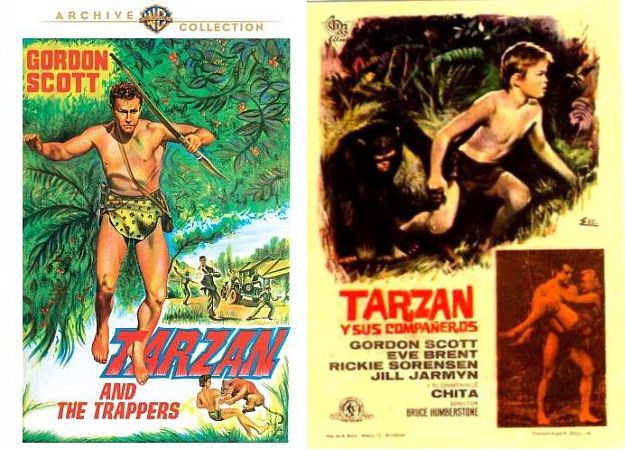
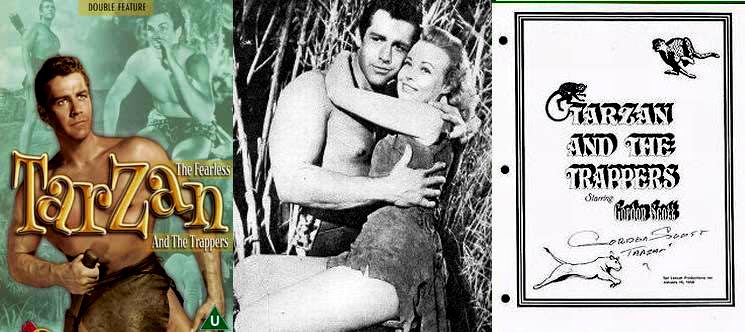
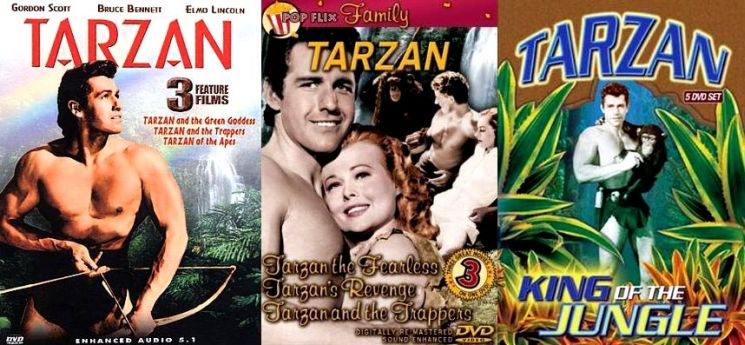
|
TARZAN AND THE TRAPPERS (1958) Gordon Scott (Tarzan), Eve Brent (Jane), Rickie Sorensen (Tartu), Lesley Bradley (Schroeder), Maurice Marsac (Rene), Naaman Brown (Tribesman), Paul Thompson (Tribesman), Don Blackman (Tribesman), Saul Gorse (Sikes), William Keene (Lapin the Trader), Sherman Crothers (Tyana), Madame Sul-Te-Wan (Witch Woman), Carl Christian, Bruce Lester, Paul Stader. Directed by Charles Haas, Sandy Howard and H. Bruce Humberstone; Screenplay by Frederick Schlick and Robert Leach; Produced by Sol Lesser; Cinematography: William Snyder and Alan Stensvold; Film Edited by George Gittens; Art Direction: Ernst Fegté and Frank Hotaling; Set Decoration Victor Gangelin and Jack Mills; Makeup artist Gustaf Norin and Carlye Taylor; Production supervisor: Fred Ahern; Assistant director: Gordon McLean; Sound technician: Jean Speak; Producer- Africa: Miki Carter; Script Supervisor Helen Gailey; Music supervisor: Audrey Granville; Script Supervisor: Cora Palmatier. Production began: Late March - early April, 1958 Released in a TV movie package May 5, 1966 Sol Lesser Productions Sound recording by Ryder Sound Services Running time: 70 Minutes Filmed in Black and White (Produced in 1958, but not shown until 1966) Native drums tell Tarzan that hunters have invaded the jungle and are killing the animals. Tarzan leaves Jane and Tartu behind to stop these ruthless hunters. The trappers are Schroeder and Rene, and they have killed an elephant to get at its baby. Tarzan frees the baby elephant, but the hunters have captured Cheetah and Tartu. Tarzan calls the elephants into action and overcomes the trappers and rescues Tartu and Cheetah. But peace in the jungle does not last long. Tarzan's friend Tyana brings news or more hunters, who seek a lost city and to plunder its treasure. Tarzan warns them to leave but they refuse. Tarzan must overcome six men to escape them. As Sikes and Lapin trek toward the lost city of Zarbo, Tarzan keeps watch. The hunters know Tarzan is following and set a trap. They capture Tyana and when Tarzan comes to help his friend, he is trapped in a hunting net. But Tyana's tribe surrounds the camp. Tarzan and Tyana are freed. Tarzan sets his own trap for Schroeder and Lapin. When they enter the lost city, they find it deserted and no treasure. Lapin is disheatened, but Schroeder still plans to kill Tarzan. Tarzan attacks the two men and is victorious. Tarzan has the natives turn the two men over to the authorities and returns to his treehouse to be with Jane and Tartu. Sol Lesser had produced many Tarzan movies over the years and now turned his attention toward making a Tarzan TV series. Filmed in 1958 following the completion of Tarzan's Fight For Life, three pilot episodes were filmed and sent to the three major networks, but they all turned him down. There was also the question about who owned the rights to do a TV series, and it would take the courts several years to decide the outcome. Meanwhile, the shows remained on the shelf until 1966 when they were edited together and released as a TV movie to take advantage of the Ron Ely TV series, which had been getting very good ratings. It is not hard to see why these shows failed to become a series. The plots and plenty of stock footage were borrowed from previous Tarzan films and the direction was rather pedestrian. |
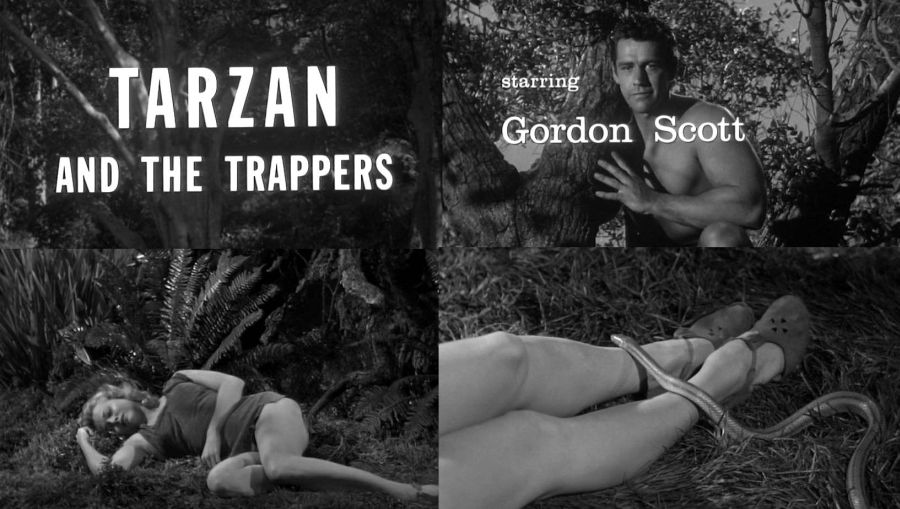 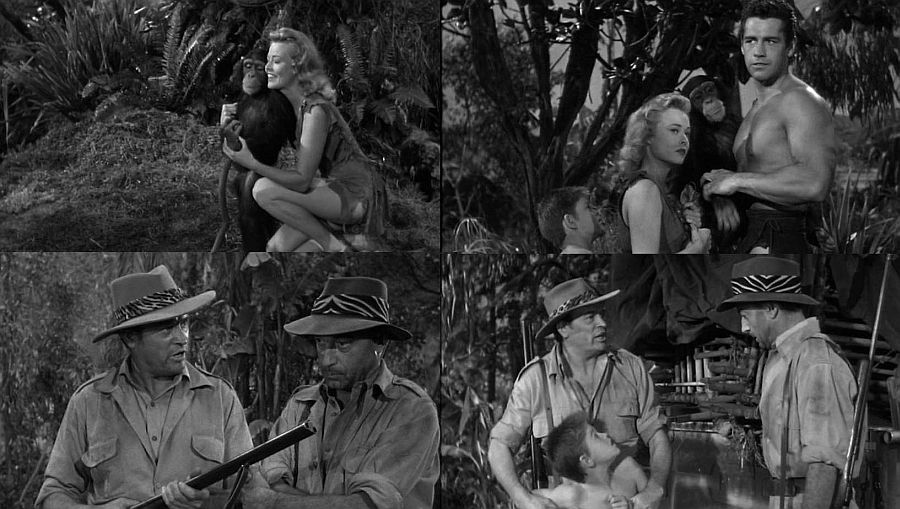 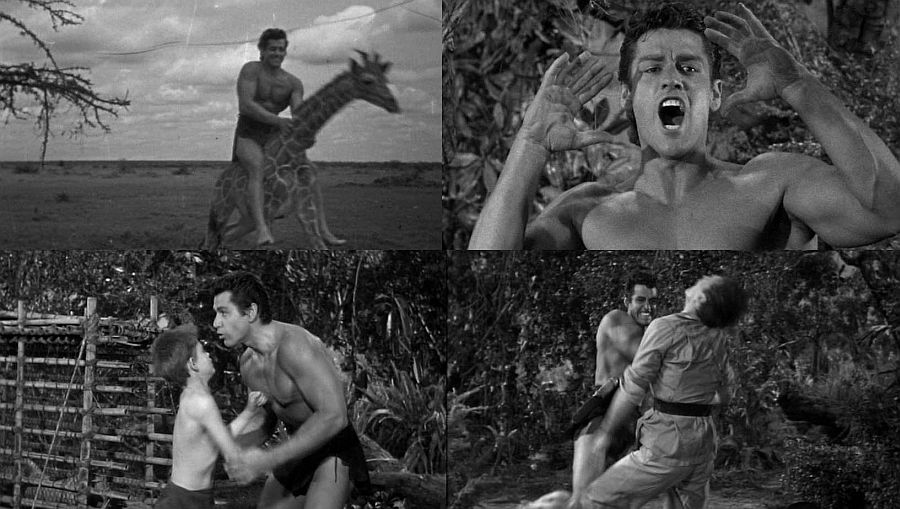 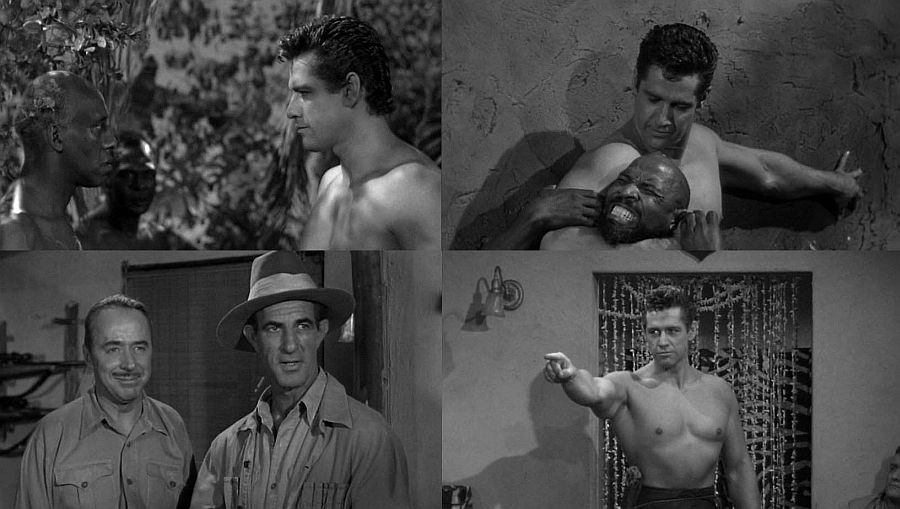 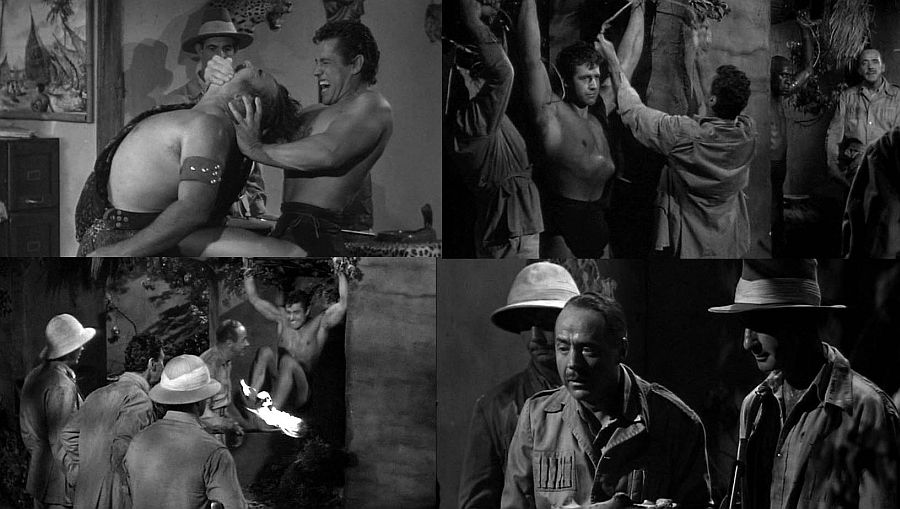 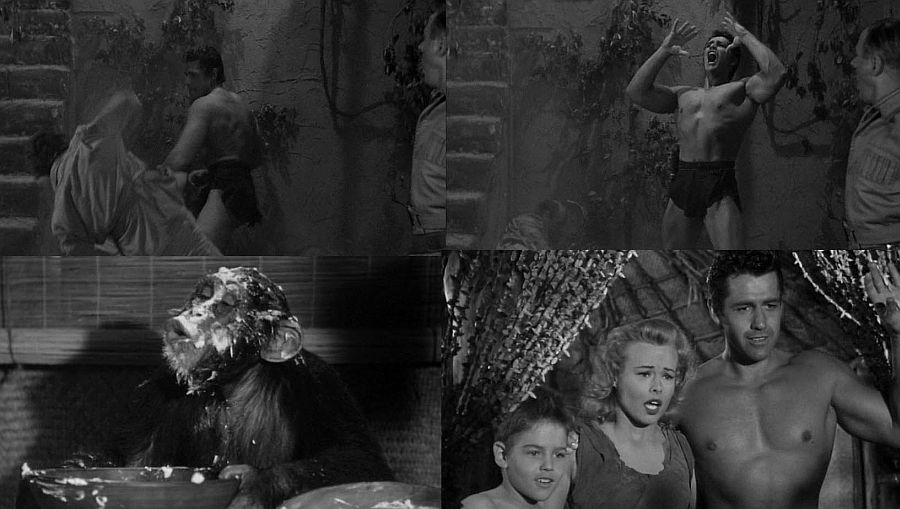 |
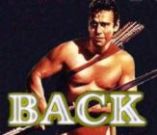 |
 |